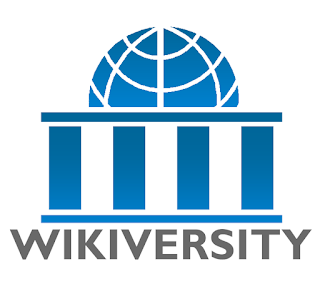MOOCS & online education
Massive Open Online Courses (MOOCs) are free online courses available for anyone to enroll. MOOCs provide an affordable and flexible way to learn new skills, advance your career and deliver quality educational experiences at scale.
Millions of people around the world use MOOCs to learn for a variety of reasons, including: career development, changing careers, college preparations, supplemental learning, lifelong learning, corporate eLearning & training, and more.
The learning content of a MOOC is created by an educational institution - universities such as Harvard, Stanford, Berkeley and other top universities. Examples from Europe include the universities of London, Oxford, Munich and Zurich.
The operation of a MOOC (course organization, administration) is coordinated by globally active MOOC platforms (e.g. Coursera and edX).
MOOCs were created from the idea of covering an entire university course online and thereby making it accessible to everyone in the world.
What’s so innovative about MOOCs?
- Teaching in a modern video format (not just texts like those that you’d find in other e-learning courses).
- Openly accessible learning content from top universities like Harvard, Stanford, etc.
- Courses in a true online format (no paper-based study materials like those required in traditional distance learning).
- Online interaction between learners and teachers (via discussion forums).
- Online tests (often resulting in certificates with verified identity of participants).
Are MOOCs really free?
With many MOOCs, learning is still free. You can watch the video course content free of charge.
However, if you wish to receive an (optional) certificate for your successful participation in the MOOC, you will have to pay a fee.
The cost structure is different for each provider. Some MOOC series are only offered for a fee, but they usually include a free trial.
Other courses require a monthly subscription. With these types of payment models, learners are motivated to complete the course faster. (Read about free courses here.)
Which topics are covered by MOOCs?
MOOCs cover many topics that are also taught at the university level. In general, most university subjects can be taught in a MOOC format. And practical skills for professional development are becoming important as well.
The number of high-quality MOOCs is especially high in some subject areas.
For example:
- computer science / programming
- business / management / economics.
Many MOOCs are presented in English and may include subtitles in English (and other languages) or transcripts. This way, international students can learn the English terminology in addition to the actual course content.
MOOCs platforms:
edX
EdX is an open-source platform offered by edX.org. It is the same platform that universities such as Harvard and MIT use to offer courses to 100,000+ students. edX has a fast, modern feel, with the ability to accommodate large enrollments.
edX is suitable for organizations that want a modern, flexible, robust course-management platform.
Moodle
Moodle is an open-source learning management system (LMS) that allows users to build and offer online courses. It was built for traditional online classrooms rather than MOOCs, which attract a large number of students. It tends to be easier to install than edX, and there are hosted or one-click install options available.
Moodle is suited for organizations that want a full-featured, customizable LMS.
CourseSites by Blackboard
CourseSites by Blackboard is an exceptionally robust platform. It has most of the features that Moodle has, including extensive teaching tools, reporting features and SCORM compliance. It is also cloud-based. You can set up a course in minutes and never have to worry about maintenance or upgrades.
The service is free for up to five live courses, and Blackboard has given no indication that this will change. The trade-off seems to be that your courses are branded with the Blackboard logo, and your students must register with Blackboard in order to join a course.
Udemy (free version)
From the beginning, Udemy has specialized in the private MOOC. Think of it as the YouTube of MOOCs. Instructors can build and host their own courses on the platform and then offer them to users for free or for a fee.
Udemy is for individuals who want to easily build basic courses and monetize them. The platform is full of coders, photographers, designers and other specialists who offer their knowledge in the form of an online course.
Versal (free version)
Versal is an intriguing new platform. Its major strengths are a sleek, intuitive user interface and a robust drag-and-drop functionality. A user can sign up for free and then build a course that includes mathematical expressions, image drill-downs and many more widgets, all without any coding knowledge. Users can also embed their published courses on other websites, such as personal blogs.
Versal is most suited to individuals who want to quickly build sleek tutorials — for example, a teacher who builds an assignment for his students, or a musician who builds a short course on music theory and posts it on his or her blog. Versal is a young product, and the company is planning to develop some of the features that its platform currently lacks. This is one to keep an eye on.



Комментарии
Отправить комментарий